第70章 CHAPTER XIX(2)
Clara stood gathered up, despairing at opportunity lost. He had noticed her contracted shape and her eyes, and had talked magisterially to smother and overbear the something disagreeable prefigured in her appearance.
"You do not despise your girl, father?"
I do not; I could not; I love her; I love my girl. But you need not sing to me like a gnat to propound that question, my dear."
"Then, father, tell Willoughby to-day we have to leave tomorrow.
You shall return in time for Mrs. Mountstuart's dinner. Friends will take us in, the Darletons, the Erpinghams. We can go to Oxford, where you are sure of welcome. A little will recover me.
Do not mention doctors. But you see I am nervous. I am quite ashamed of it; I am well enough to laugh at it, only I cannot overcome it; and I feel that a day or two will restore me. Say you will. Say it in First-Lesson-Book language; anything above a primer splits my foolish head to-day."
Dr Middleton shrugged, spreading out his arms.
"The office of ambassador from you to Willoughby, Clara? You decree me to the part of ball between two bats. The Play being assured, the prologue is a bladder of wind. I seem to be instructed in one of the mysteries of erotic esotery, yet on my word I am no wiser. If Willoughby is to hear anything from you, he will hear it from your lips."
"Yes, father, yes. We have differences. I am not fit for contests at present; my head is giddy. I wish to avoid an illness. He and I ... I accuse myself."
"There is the bell!" ejaculated Dr. Middleton. "I'll debate on it with Willoughby."
"This afternoon?"
"Somewhen, before the dinner-bell. I cannot tie myself to the minute-hand of the clock, my dear child. And let me direct you, for the next occasion when you shall bring the vowels I and A, in verbally detached letters, into collision, that you do not fill the hiatus with so pronounced a Y. It is the vulgarization of our tongue of which I accuse you. I do not like my girl to be guilty of it."
He smiled to moderate the severity of the correction, and kissed her forehead.
She declared her inability to sit and eat; she went to her room, after begging him very earnestly to send her the assurance that he had spoken. She had not shed a tear, and she rejoiced in her self-control; it whispered to her of true courage when she had given herself such evidence of the reverse.
Shower and sunshine alternated through the half-hours of the afternoon, like a procession of dark and fair holding hands and passing. The shadow came, and she was chill; the light yellow in moisture, and she buried her face not to be caught up by cheerfulness. Believing that her head ached, she afflicted herself with all the heavy symptoms, and oppressed her mind so thoroughly that its occupation was to speculate on Laetitia Dale's modest enthusiasm for rural pleasures, for this place especially, with its rich foliage and peeps of scenic peace. The prospect of an escape from it inspired thoughts of a loveable round of life where the sun was not a naked ball of fire, but a friend clothed in woodland; where park and meadow swept to well-known features East and West; and distantly circling hills, and the hearts of poor cottagers too--sympathy with whom assured her of goodness--were familiar, homely to the dweller in the place, morning and night.
And she had the love of wild flowers, the watchful happiness in the seasons; poets thrilled her, books absorbed. She dwelt strongly on that sincerity of feeling; it gave her root in our earth; she needed it as she pressed a hand on her eyeballs, conscious of acting the invalid, though the reasons she had for languishing under headache were so convincing that her brain refused to disbelieve in it and went some way to produce positive throbs. Otherwise she had no excuse for shutting herself in her room. Vernon Whitford would be sceptical. Headache or none, Colonel De Craye must be thinking strangely of her; she had not shown him any sign of illness. His laughter and his talk sung about her and dispersed the fiction; he was the very sea-wind for bracing unstrung nerves. Her ideas reverted to Sir Willoughby, and at once they had no more cohesion than the foam on a torrent-water.
But soon she was undergoing a variation of sentiment.
Her maid Barclay brought her this pencilled line from her father:
"Factum est; laetus est; amantium irae, etc."
That it was done, that Willoughby had put on an air of glad acquiescence, and that her father assumed the existence of a lovers" quarrel, was wonderful to her at first sight, simple the succeeding minute. Willoughby indeed must be tired of her, glad of her going. He would know that it was not to return. She was grateful to him for perhaps hinting at the amantium irae, though she rejected the folly of the verse. And she gazed over dear homely country through her windows now. Happy the lady of the place, if happy she can be in her choice! Clara Middleton envied her the double-blossom wild cherry-tree, nothing else. One sprig of it, if it had not faded and gone to dust-colour like crusty Alpine snow in the lower hollows, and then she could depart, bearing away a memory of the best here! Her fiction of the headache pained her no longer. She changed her muslin dress for silk; she was contented with the first bonnet Barclay presented.
Amicable toward every one in the house, Willoughby included, she threw up her window, breathed. blessed mankind; and she thought: